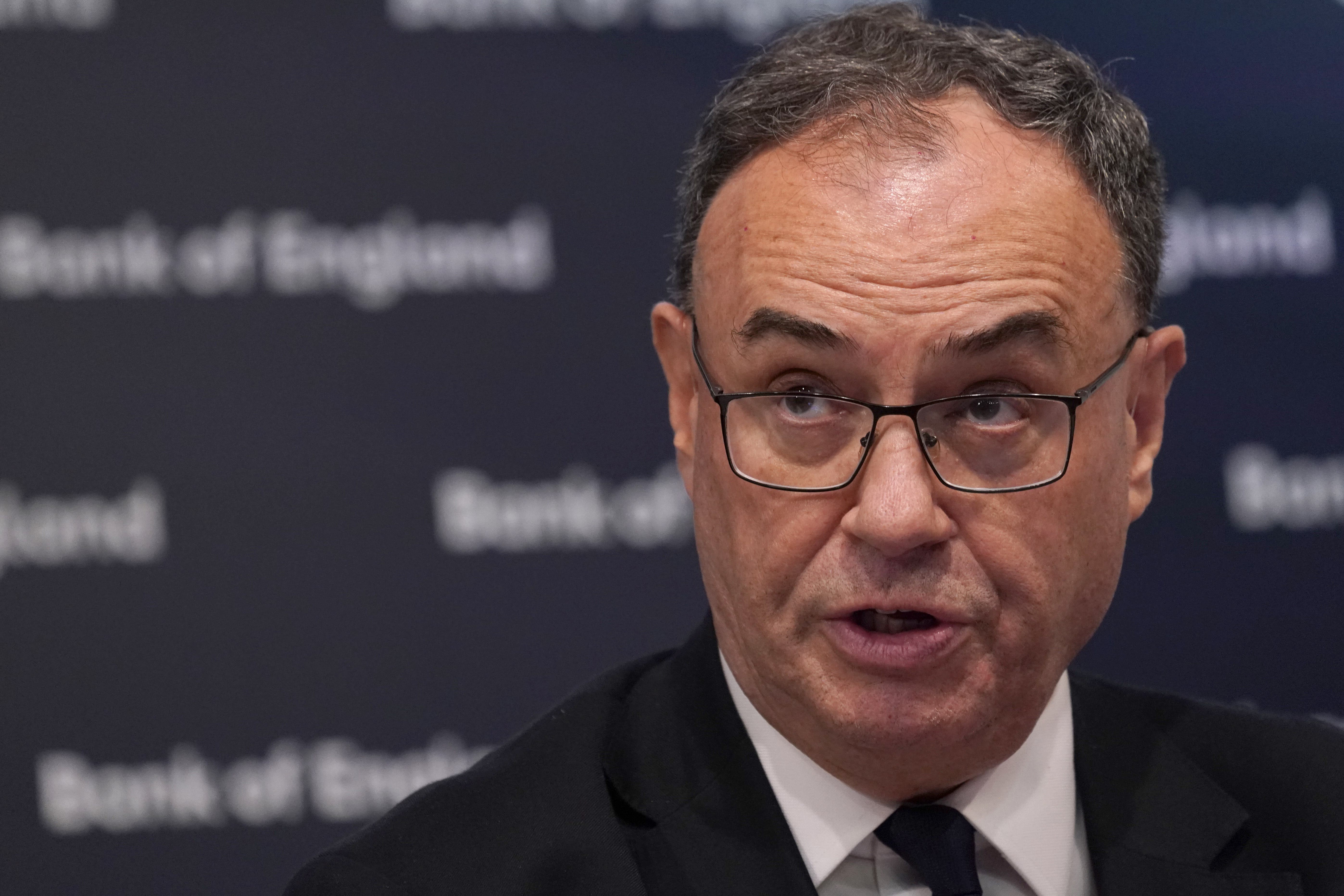Bailey hints at faster rate cuts – but oil prices could spoil the party
The Bank of England boss caused a minor earthquake with his recent comments, writes James Moore. But with turmoil in the Middle East adding an unknown quantity to the equation, is the City getting ahead of itself?


Andrew Bailey, governor of the Bank of England, said in an interview with The Guardian that the Monetary Policy Committee (MPC) could be “a bit more activist” in bringing rates down.
Those comments were enough to send the City into a panic, and the gains the pound had made in the last couple of weeks were quickly wiped out. Sterling lost more than a percentage point against the dollar, euro and yen – a minor earthquake on the currency markets.
Economists meanwhile scrambled to update their forecasts, as the expectation that the Bank would take a more cautious approach than either the US Federal Reserve or the European Central Bank was rapidly reassessed.
However, in a post on Twitter/X, Panmure’s Simon French correctly highlighted a small – but highly important – word of Bailey’s that much of the square mile ignored, “if”. The MPC could be a bit more activist if the news on prices continues to be good, and if inflation continues to behave in the way the Bank hopes it will. This, obviously, means it will need to stay within spitting distance of the Bank’s 2 per cent target.
That word may have a big role to play as the data rolls in over the weeks ahead. Keep an eye on service prices in particular. They have been running hot despite the MPC’s efforts, and some of its members remain highly concerned about this.
Britain’s hard-pressed borrowers could be forgiven for looking past that – especially those contemplating the purchase of a new home. Mortgage rates continued to fall, with lenders competing hard to lure customers. HSBC unveiled some tasty new rates. Barclays teed up some of its own for the following day. More look sure to follow.
Nicholas Mendes, from mortgage broker John Charcol, said “swap” rates – used to set the prices of the most popular fixed rate deals – have “already started to fall” following Bailey’s comments.
“Lenders are likely to pass on these reductions promptly to attract new business and outcompete rivals, which can be a significant advantage for consumers,” he said. Mendes highlighted five-year fixes as offering particularly good value.
The news was likely no less exciting for the embattled Rachel Reeves. She will be a major beneficiary of cheaper borrowing. Given the state of the public finances, the chancellor will take any help she can get. Ditto small businesses, which have been hamstrung by high financing costs on top of the cruel reality of dealing with Brexit.
The City now thinks a quarter-point cut at the next MPC meeting early in November is all but nailed on. Despite its tendency to get excited, I’m inclined to agree – in the absence of the inflation rate throwing an unexpected spanner into the works.
However, it isn’t yet a certainty. There is an elephant in the room in the form of the oil price. The dreadful events in the Middle East have pushed it higher and could have it spiralling out of control before too long.
In the same interview, Bailey said he was watching developments “extremely closely”. So he should be. The risk of an oil price shock is real and, as Bailey admitted, there isn’t much the MPC can do to influence it.
However, the Bank will have to deal with its impact if it affects its economic modelling. This may include taking steps to curb what Bailey has previously referred to as the “second order effects” of an energy price spike, like the one that did so much damage last year and pushed base rates above 5 per cent.
Bailey’s comments are still welcome, particularly in the wake of the government’s gloomy tone, which has knocked both consumer and business confidence. They will be cheered in many places – all the more so if they are reflected in future MPC votes to cut rates.
But recent history has shown just how easy it is for black swans to swoop in and spoil things. Don’t forget that pesky little word, “if”.






Join our commenting forum
Join thought-provoking conversations, follow other Independent readers and see their replies
44Comments